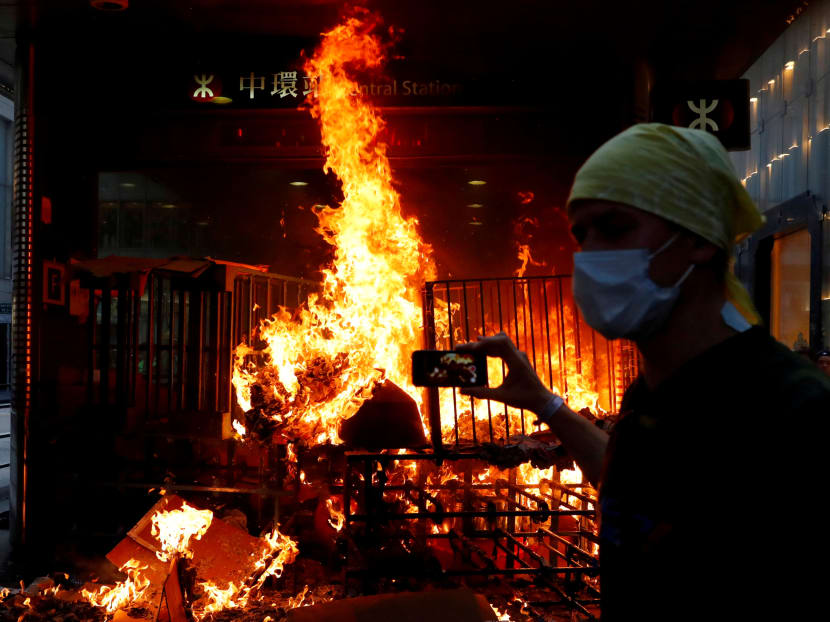Hong Kong man set on fire by protesters in November says he will continue to fight injustice
HONG KONG — A man who was set on fire by radicals amid Hong Kong’s anti-government protests in November last year has said he will not be frightened off and will continue to fight injustice, according to a lawmaker who visited him.
HONG KONG — A man who was set on fire by radicals amid Hong Kong’s anti-government protests in November last year has said he will not be frightened off and will continue to fight injustice, according to a lawmaker who visited him.
The construction worker, who suffered burns to at least a third of his body, has been discharged and returned home recently after staying in a hospital for about three months.
The man, surnamed Lee, who is not being fully named because of a court order, had four rounds of surgeries to have skin transplanted onto his burn wounds. But the procedures were so painful that Mr Lee said he would rather give up further rounds of skin grafting.
Mr Lee’s latest condition was disclosed in a post on the Facebook page of pro-Beijing legislator Elizabeth Quat, who visited him and his wife at their home last Saturday (Feb 8).
The 57-year-old man was reportedly involved in an argument with masked protesters who rampaged through Ma On Shan MTR station during an anti-government protest on November 11.
Online footage showed the father of two being doused with flammable liquid and then set alight.

He was sent to hospital in a critical condition with burns to at least a third of his body. He also lost part of his left ear in the attack.
Ms Quat, who has been helping Mr Lee’s family, said: “I asked him if he regretted what he had done. He said he was a bit impulsive, but would not be frightened off. He said he would stand up and speak out in the future whenever he saw injustice.”
“He stressed: ‘It was not me who had done anything wrong’,” Ms Quat said, recalling her chat with Mr Lee over the weekend.
“It was an inhumane attack. What had he done? He did not do anything wrong. I hope police bring the perpetrators to justice soon,” Ms Quat added.
She said Mr Lee was weak but positive.
“But he said the previous surgeries were too painful. Besides the painful skin grafts, the wounds on his thigh from where skin was taken also hurt much. So, he did not want to do another round of skin grafting,” Ms Quat said.
“He said it was very painful. The wounds would itch and he could not sleep well,” she added.
Ms Quat said Mr Lee was pleased he could return home at last, but the road to recovery was still very long. Nurses will regularly visit him to check on his progress.
She said the family thanked the public for their care and support but they would not entertain the press or make any public appearances for the sake of privacy and health.
Last month, Hong Kong Chief Executive Carrie Lam visited Mr Lee’s wife and gave her HK$300,000 (S$53,600) raised by the pro-Beijing Federation of Trade Unions. Financial Secretary Paul Chan Mo-po also visited Mr Lee in December last year.
Hong Kong has been rocked by months of social unrest, sparked by the now-withdrawn extradition bill.
The protests have since morphed into a wider anti-government campaign seeking greater democracy and police accountability. SOUTH CHINA MORNING POST










